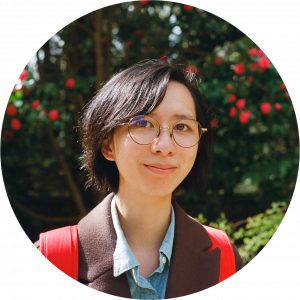On Saturday, September 2, 2023, longtime ACAM and UBC INSTRCC supporter Larry passed away. We will never forget Larry Wong’s impact on our students and his devotion to storytelling the untold histories of Asian Canadians. As ACAM marks its 10th anniversary, we are sad to lose one of the key community members who advised and helped found ACAM a decade ago. We are proud that our UBC INSTRCC student Jennifer Yip, working with the Chinese Canadian Historical Society of BC, helped edit and publish Dim Sum Stories: A Chinatown Childhood (2011), his acclaimed collection drawn from his memories of growing up in Vancouver Chinatown.
We share the remembrance of long time friend and community volunteer Catherine Clement:
On September 2, Larry sailed away to a distant shore. He was 85.
A community historian, a writer, a playwright, a mentor, a consummate volunteer, Larry was a champion for all things Chinese Canadian.
Larry arrived in this world in the summer of 1938, the fourth and final child of WONG Mow, a tailor, and LEE Shee, an occasional opera singer. Both had immigrated from China. He grew up in his father’s workshop/store – the Modern Silk Shirt company – located at 432 Main Street in Vancouver.
Larry was born during the Chinese Exclusion Act years and that legislation had a profound impact on his family. When his mother died of tuberculosis when Larry was just 18-months old, his father struggled to raise four children while also running a tailor shop on his own. The Exclusion Act made it impossible for Wong Mow to marry again and bring a second wife from China. Consequently, his father often handed over some of Larry’s care to a local Chinese “bachelor” named WONG Seid Yew. Later in life, Larry would get emotional when he recalled the many elderly Chinese bachelor men still living in Chinatowns in Canada – a group for whom exclusion never ended.
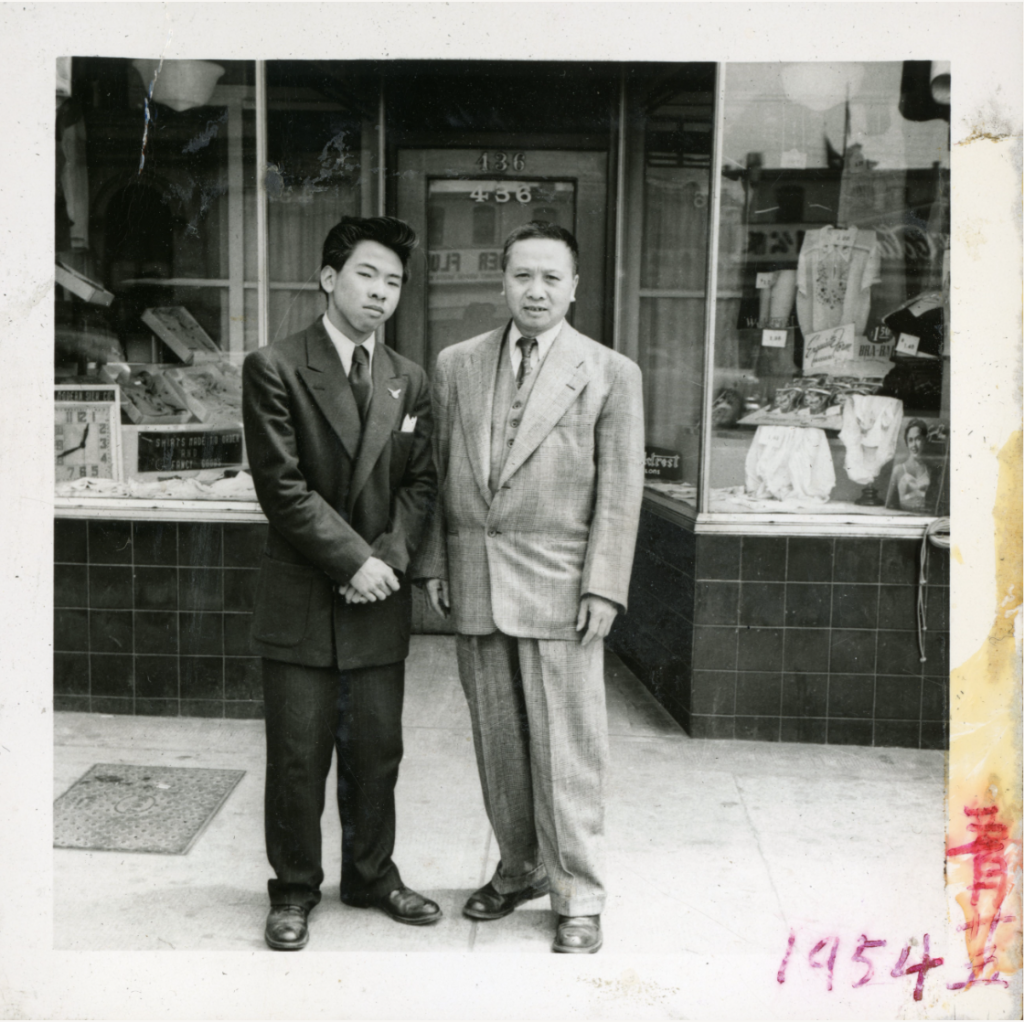
Larry Wong (left) and his father in 1954
While Larry took a while to find his footing in the world of work, he eventually enjoyed a long career with Canada Post and later the federal Department of Employment & Immigration. However, it was only after Larry retired from the civil service that he discovered his greatest passion: Chinese Canadian history.
It helped that Larry loved sharing stories from his own past. And, with the gift of the gab and a creative ability to add colour to any story, Larry was always an entertaining conversationalist.
In retirement, Larry became an enthusiastic volunteer. He helped establish and became the first curator for The Chinese Canadian Military Museum. He helped create The Chinese Canadian Historical Society of B.C. and became its second president. Larry joined the Asian Canadian Writers Workshop and wrote a couple of plays. He also served on numerous boards including the Vancouver Historical Society. He purchased almost every book published by a Chinese Canadian writer – both fiction and non-fiction – and was a lifelong friend to celebrated author Wayson Choy (1939-2019).
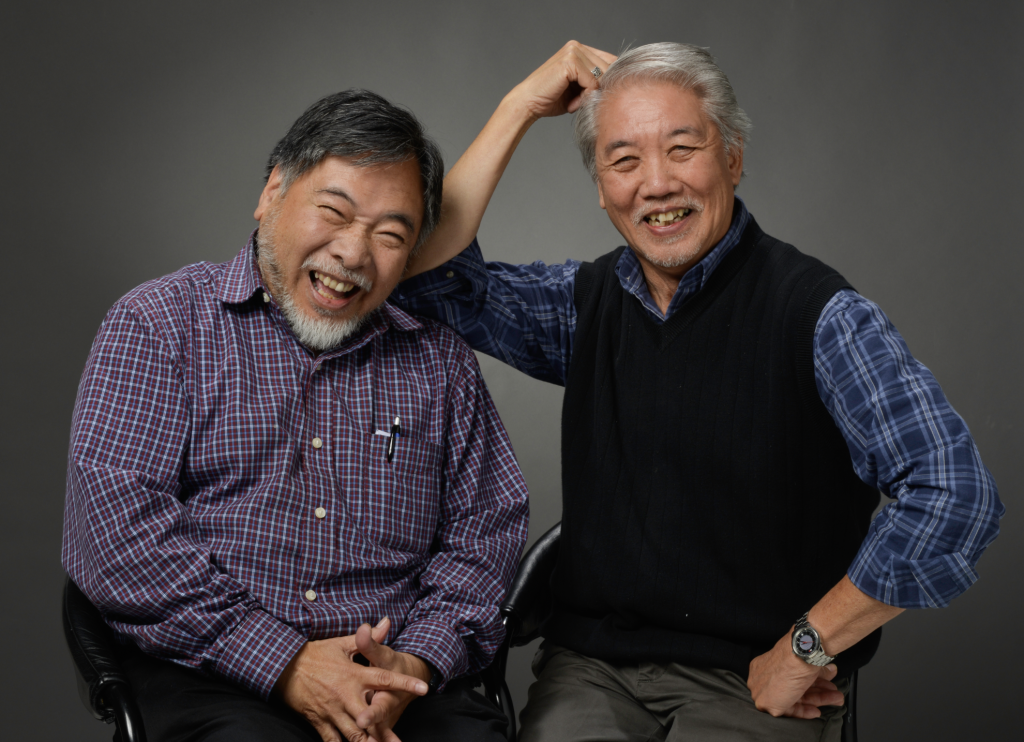
Larry Wong (left) and Wayson Choy in 2012
One of Larry’s proudest moments was finally writing his own memoirs which were published in a 2011 book Dim Sum Stories: A Chinatown Childhood. Not only was the book an entertaining read, it became an important document describing everyday life in Vancouver’s Chinatown during the 1940s-1960s.
Larry enjoyed food and relished every kind of pastry produced in Chinatown bakeries. It was easy to make him laugh, and he had the warmest smile.
Although Larry fell in love many times during his lifetime, he never married. He often theorized that he never found the right partner because he was always seeking a woman to replace his late mother. In the end, he left this world with many good friends but no partner and no children. His legacy will live on, however, in the support he left to future students at the Asian Canadian and Asian Migration Studies program at the University of British Columbia.
For someone who dedicated many years to history and to remembering, it was an irony and tragedy that Larry’s last years of advancing dementia robbed him of his memory.
However, Larry remained cheerful and smiling right to the end and was a favourite among the staff at Blenheim Lodge. We thank the staff there for caring for Larry in this last phase of his life.
A celebration of life will be held November 26 in Vancouver.
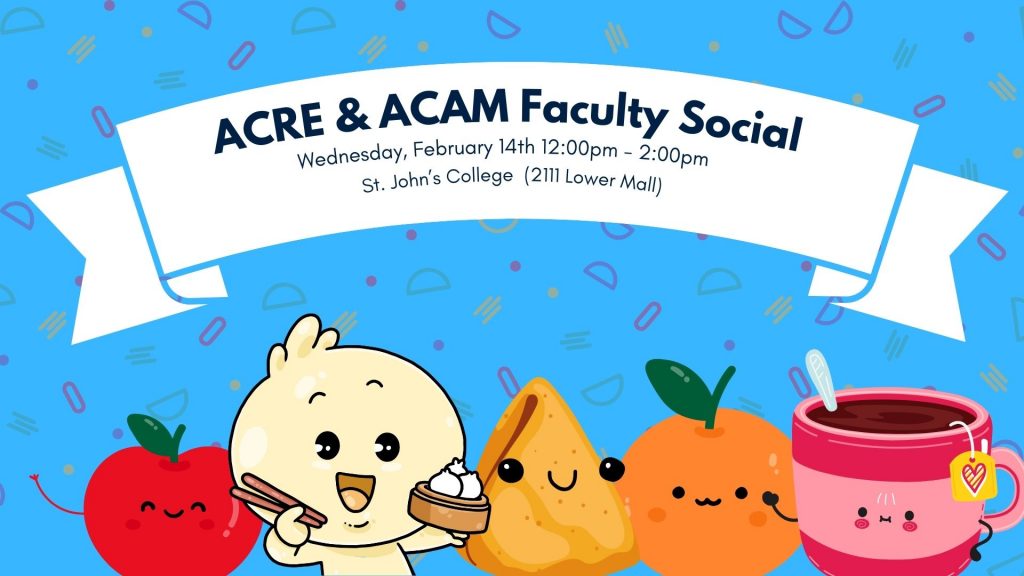
 Faculty of Art
Faculty of Art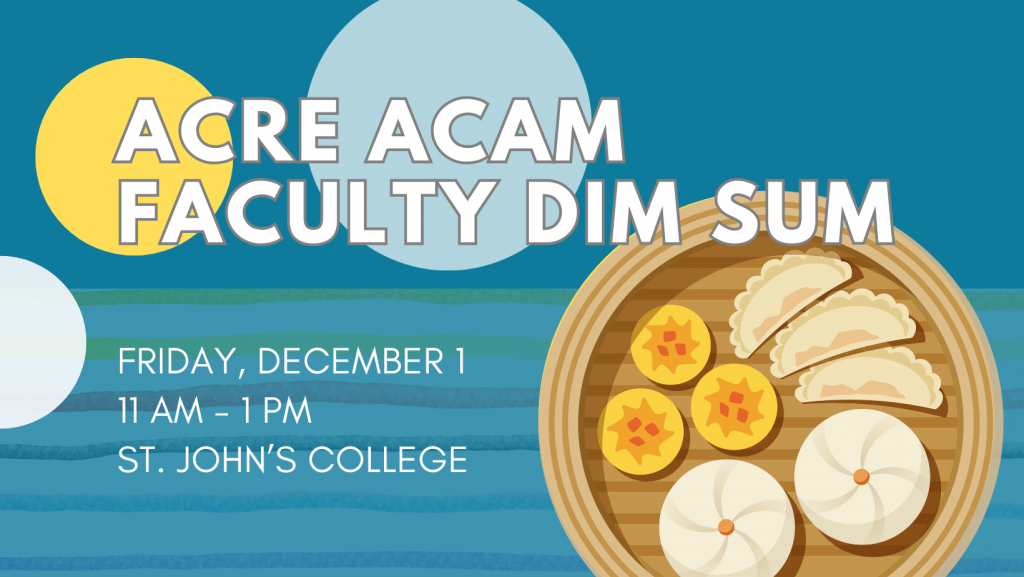
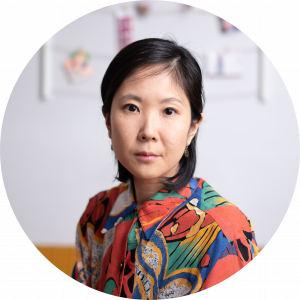



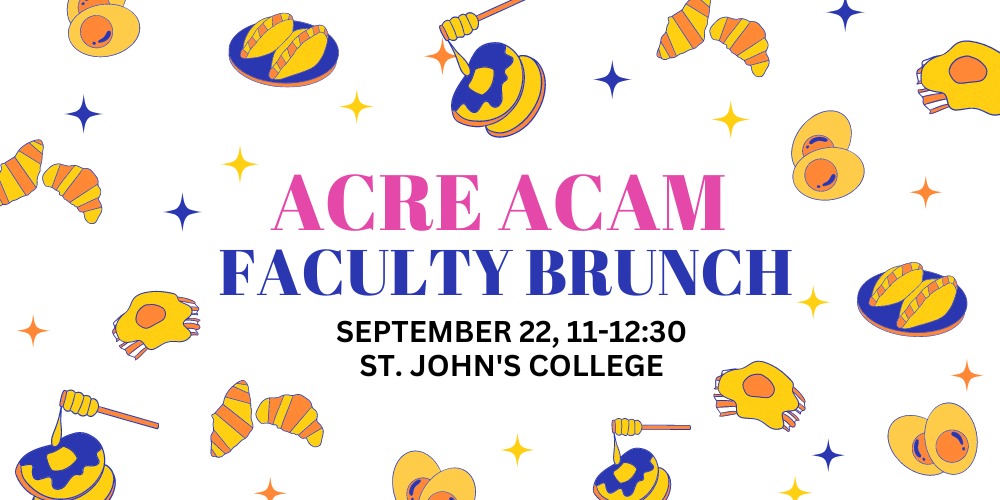 We are excited to announce that the Centre for Asian Canadian Research & Engagement (ACRE) and the Asian Canadian & Asian Migration Studies program (ACAM) will be hosting a faculty brunch on Friday September 22, 11am-12:30pm at St. John’s College (2111 Lower Mall)! Please join us for a casual brunch to connect and catch up with other faculty in the broader ACRE ACAM orbit. During the brunch, ACAM Director, Dr. Laura Ishiguro, and ACRE Co-leads, Dr. JP Catungal and Dr. Henry Yu, will be sharing some recent developments and upcoming initiatives for the academic year 2023-24. Make sure to RSVP by Friday September 15 using the form below to reserve a spot!
We are excited to announce that the Centre for Asian Canadian Research & Engagement (ACRE) and the Asian Canadian & Asian Migration Studies program (ACAM) will be hosting a faculty brunch on Friday September 22, 11am-12:30pm at St. John’s College (2111 Lower Mall)! Please join us for a casual brunch to connect and catch up with other faculty in the broader ACRE ACAM orbit. During the brunch, ACAM Director, Dr. Laura Ishiguro, and ACRE Co-leads, Dr. JP Catungal and Dr. Henry Yu, will be sharing some recent developments and upcoming initiatives for the academic year 2023-24. Make sure to RSVP by Friday September 15 using the form below to reserve a spot!